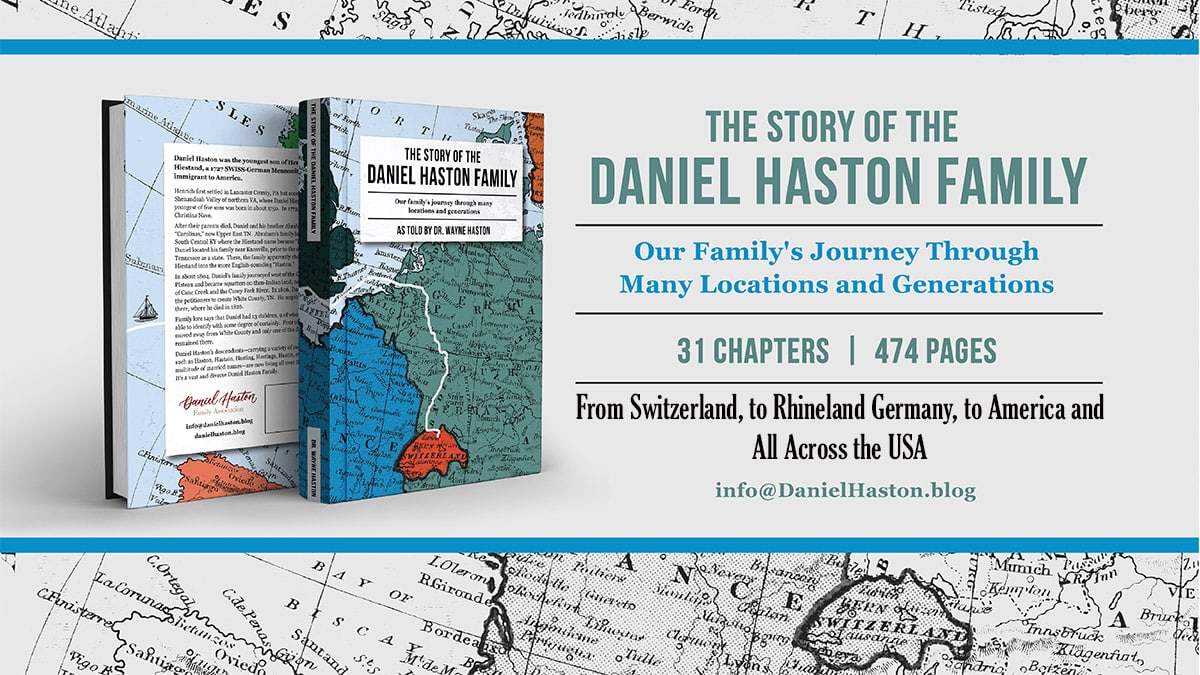05 - Ibersheim, Germany
German Home-Village of Our Hiestands
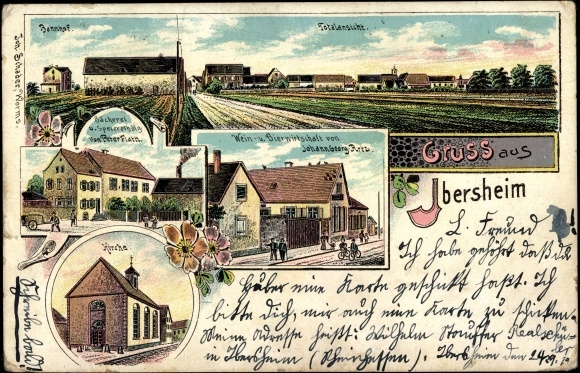
The village of Ibersheim (pronounced, Ibers-heim [“ib” as in “crib”]) is situated on what historically was an unprotected floodplain on the left bank (west side of) the Rhine River, just below (north of) a sharp northeastward bend in the river, about six miles (12 km) northeast of the center of Worms, Germany. In earlier years, sometimes it was referred to as Ibersheimer Hof (farmstead).
When the Swiss Mennonites entered the Palatinate after the Thirty Years War, most of them settled in villages. Not only was there a greater chance of freedom from oppression in the villages, as compared to the cities, but the villages were where their superb farming and viticulture skills were needed. If the post-war Palatinate was going to be restored, it would need to begin with the farms and the vineyards. And no group was better prepared for that task than the Swiss Brethren who, for more than 100 years, had been forced to eke out a farm living on shallow-soil of small and steep-mountain farms, high in the Swiss Alps.
There were many villages in the Rhineland where they were needed and welcomed. But the village of Ibersheim (or Ibersheimerhof, as it was then called) stands out as a Palatinate village that became identified as a uniquely Swiss Mennonite community.
By 1672, it was already nicknamed “the Mennonistenhof,”[i] meaning “Mennonite Estate.” It has been said that “of all the Mennonites worldwide, around 10% originate in this region.”[ii]
[i] John L. Ruth, Maintaining the Right Fellowship, 43.
[ii] Wikipedia contributors, “Ibersheim,” Wikipedia, The Free Encyclopedia, accessed October 14, 2017, https://en.wikipedia.org/wiki/Ibersheim.
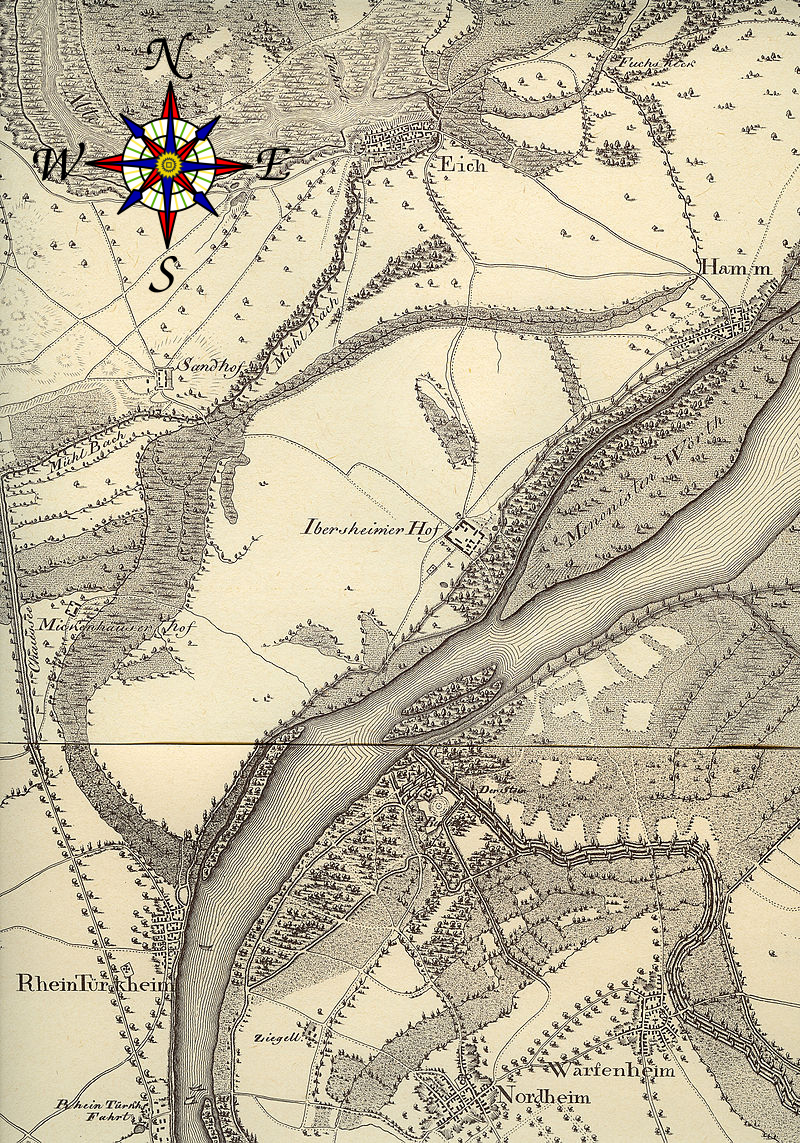
1618-1648 Ibersheim in the Thirty Years War
As the previous article indicated, the area of the Palatinate in and around Ibersheim was laid desolate during the Thirty Years War. Many residents of the region were slaughtered by the various armies that plundered the Rhine Valley and other inhabitants were forced to flee.
The former medieval parish village of Ibersheim and its surrounding fields was a ruined farm when the Thirty Years War ended. And there were no tenants to work the farm, much less a system of management. The farm included 2,000 acres, including five islands in the Rhine and Meadows on the east of the Rhine.[i] But, this rich flood plain farm land lay desolate.
[i] Gudrun, “Mennonites (Baptists) on the Ibersheimer Hof am Rhein Near Worms in Rhineland-Palatinate, Germany,” trans. Google Translate, Mennonien in Deutschland (blog), December 4, 2013, accessed October 13, 2017, http://happlogruppeu5europa.blogspot.com/2013/12/mennoniten-in-ibersheim-auf-dem.html.
Meanwhile, Swiss Mennonite refugees started trickling into Ibersheim in the 1650s.
In 1661, “the people of Ibersheim got a special permit to be public subjects of the Electoral Palatinate,” and the Elector sent this message to officials in his administration regarding these Mennonite tenants:
They should not be worried or harmed by us and our subjects because of their religion, but they are not allowed to hold public or secret meetings and conventions with others, who are not living in this court (farmstead) and they are not allowed to draw others near to them and to seduce them.[i]
[i] “Mennonites at Ibersheim, Germany,” 84.
Two of the earliest Swiss Anabaptist refugees to settle in Ibersheim were Konrad and Kleiann Hiestand, brother and sister. They were grandchildren of Heinrich and Anna Lutholt Hiestand from Richterswil in Canton Zürich, where Anna was on record as being an Anabaptist. Konrad and Kleiann, who apparently had adopted their grandmother’s faith, left their Swiss home in 1657. Kleiann married Jacob Brubacher, a neighbor she probably grew up with in Richterswil. She and Jacob lived next door to Konrad’s family in Ibersheim.[i]
[i] J. Ross Baughman, Apart from this World. (Edinburgh, VA: Shenandoah History Publishers, 1997), 72.
In 1683, nineteen years after the 1664 Concession, ten Mennonite men, who were heads of families in Ibersheim, were granted extraordinary rights not enjoyed elsewhere in the Palatinate. They were granted rights to be “hereditary tenants.” That meant they could pass on to their sons the tenant-rights they enjoyed for portions of the Ibersheim estate they were living on. Konrad Hiestand was one of the specially privileged ten.
- Brubacher, Hans Jacob – from Hirzel, Horgen, in Canton Zürich
- Dentlinger, Jacob – from Bernese Oberland (Highlands)
- Forrer, Hans Jacob – from Hirzel, Horgen, Zürich
- Gochenauer, Heinrich – from Fischenthal, Hinwil, Zürich
- Hagmann, Ulrich – from Eidberg, Oberwinterthur, Zürich
- Hiestand, Konrad – from Richterswil, Horgen, Zürich
- Leitweiler, Hans – from Aarau, Aargau, and Zürich
- Neff, Heinrich – from Vollenweid, Hausen, Zürich
- Opmann, Peter – from Oberdiessbach, Bern-Mittelland
- Reif, Heinrich – from Schönenberg, Horgen, Zürich
In 1685 Conrad Hiestandt, of Ibersheim, had five children and two stepchildren. There was a Hennrich Hiestandt in Ibersheim who had ten children.
1693-1698, Refuge in Friedrichstadt on the North Sea
Friedrichstadt is located in Schleswig-Holstein, Germany’s northernmost state.
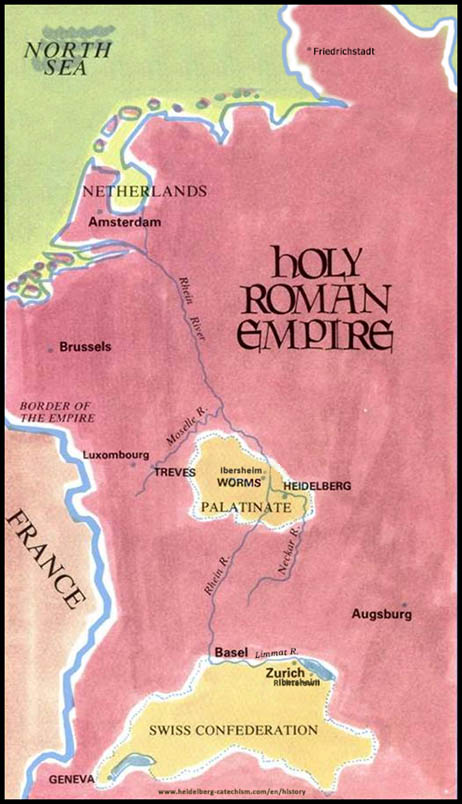
In 1689 Ibersheim and the entire Palatinate again became a hot war zone. Five years after hereditary tenant rights were granted to the ten Mennonite families, French troops of Louis XIV invaded the Palatinate in 1688, launching the Nine Years War or the War of the Grand Alliance.
Mennonites from Ibersheim and many other villages in the Rhineland were forced to seek refuge away from homes they had expended a great deal of effort to build and farms they had labored hard to reclaim from the devastation of the previous war. Most, if not all, of them fled the area and some became refugees in the Netherlands.
On June 18, 1690 “the ministers and elders in the Palatinate” wrote two nearly identical letters to Mennonites in Holland, asking for advice:
Since because of the destructive war here in the country, great ruin and damage has taken place, so that many people will have to leave the country because of lack of bread; and considering that a heartfelt comfort has been promised to us from you as our dear brethren, on the advice of ministers and elders, we have commissioned these men as fellow ministers and elders to make a journey to you people, namely Jonas Lohrer, Johan Schumacher, and Christian Plein, to consult with you about where each of us who cannot remain here in the country might be able to go to earn his bread.[i]
[i] Jeremy Dupertuis Bangs, Letters on Toleration, 352.
Hans Jacob Hiestand was one of the 15 Mennonite church leaders who signed these letters. On the advice of Mennonite leaders from Holland, three and a half years later Hans Jacob Hiestand led a group of Palatine Mennonites to join a Dutch community in Friedrichstadt on the North Sea. There they were able to rent farms and enjoy a fair measure of religious tolerance.
In addition to a couple of Hiestand families and one single Hiestand woman, the October 13, 1693 group included other individuals or families known to have been connected to the Hiestands.
Hanss Jacob Hestand, minister, with wife and child
Hanss Gochenauwer with wife and siblings
Hanss Jacob Bropacher (Brubacher) with wife and child
Hanss Strickler with wife
Hanss Cunrad Strickler
Jacob Strickler
Josep Gochenauwer
Hanss Jacob Forer
Hanss Heindrich Hestand
Maria Hestands
Maria Gochenauwer
Feronicka Gochenauwer
Barbera Mallinger
Jonas Melinger, brother of former, not yet a member of congregation[i]
[i] Sem C. Sutter, “Palatine Mennonites in Schleswig-Holstein, 1693-1698,” 19.
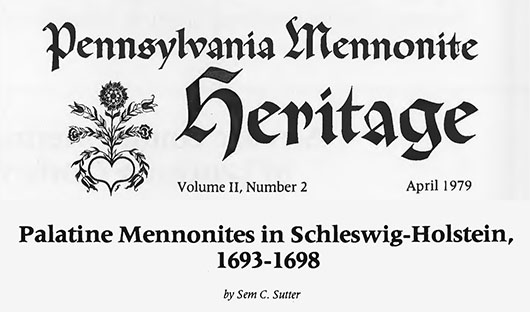
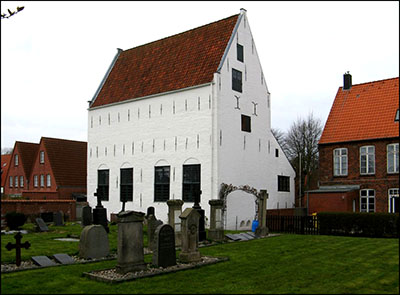
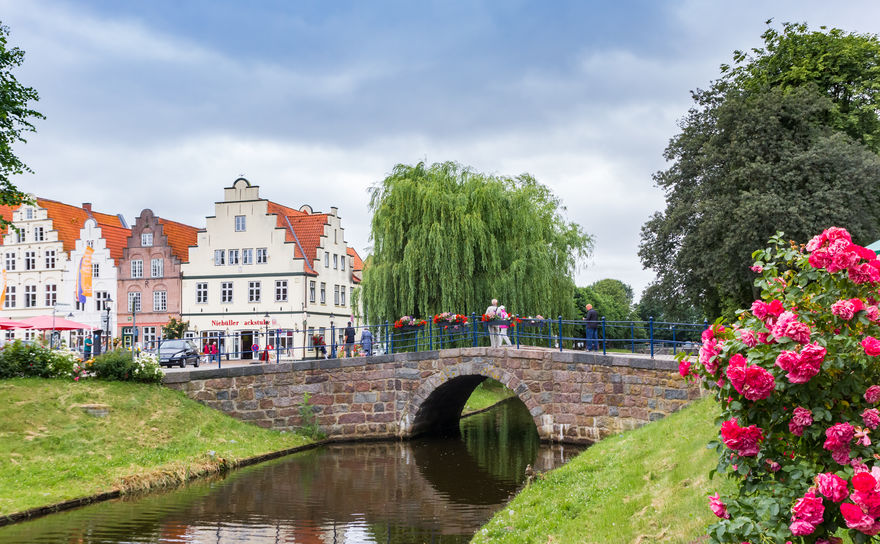
Return to Ibersheim
When the Treaty of Ryswick ended the War of the Grand Alliance (Nine Years War) on September 20, 1697, the Palatine refugees in Friedrichstadt must have been eager to return home, after four years in exile. “A church letter signed April 9, 1698 (Old Style) by the ‘ministers, elders, and deacons of the so-called United Flemish, Frisian, and High German Mennonite congregation’ of the Netherlands lists twenty members leaving Friedrichstadt for the Palatinate.” Among this group, were:
Hans Jakob Heÿstandt and his wife (Antie Beyers, married April 29, 1694)
Henderich Heÿstandt and his wife (Barbara Mellingers, married November 25, 1694)
Hanns Henderik Heÿstandt and his wife (Maria Gognouwers, married February 20, 1698)
Josep Kognauwer and his sisters, Leÿsbet and Katrÿna
Hanss Strechler and his wife, Antie[i]
The “Heÿstandt” spelling emerged because the main dialect of German the people spoke there was from the Netherlands.
[i] Sem C. Sutter, “Palatine Mennonites in Schleswig-Holstein, 1693-1698,” 19-20.
It is likely, that Jakob Heÿstandt or Henderich Heÿstandt or Hanns Henderik Heÿstandt was the father of our immigrant ancestor, Henrich Hiestand who was born in 1704. In a later chapter, we will consider the evidence we currently have to determine the most probable parents of our Henrich.
Wayne Haston
Hiestand Home in Ibersheim for 200+ Years
On a June 2018 tour visit to Ibersheim, our guide, himself a Hiestand descendant, showed us buildings that Hiestands lived in many years ago.

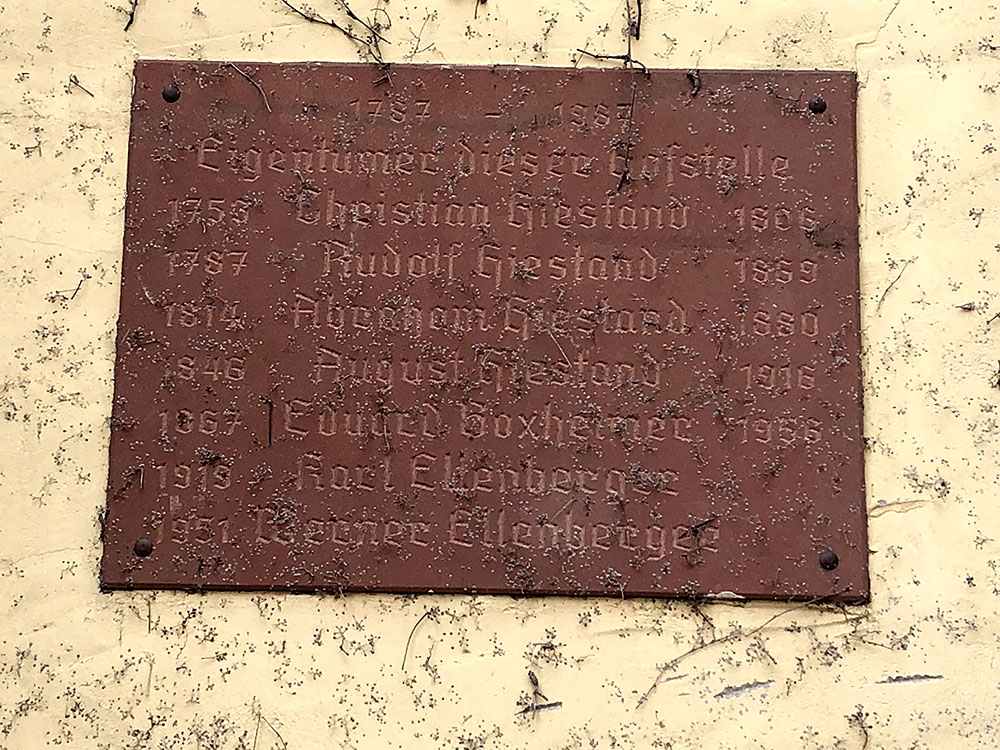
Mennonite Church in Ibersheim
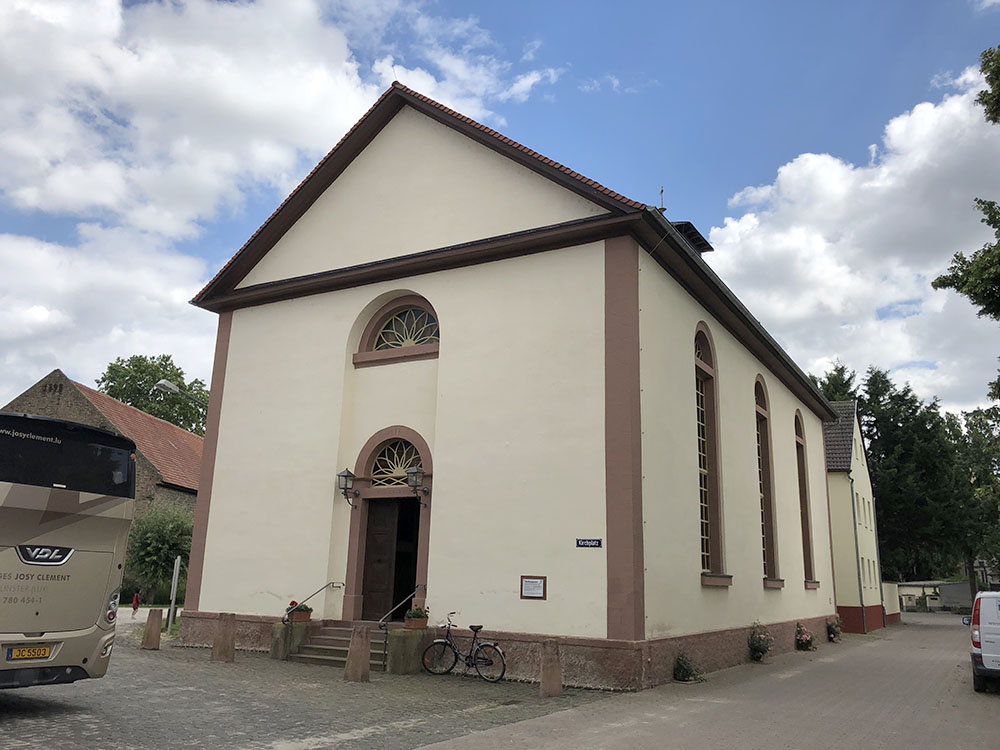
The original structure of the current church in Ibersheim was constructed in 1836 on the site of the old original meetinghouse. Even before the new building was erected, in 1822 the Ibersheim congregation purchased an organ, a new addition to their worship services. On February 11, 1866 two new bells were dedicated by the Ibersheim church, still the only Mennonite church in southern Germany to have a bell tower. In 1891, the church was incorporated. It is the only church in the village.[i]
[i] Abraham Braun, “Ibersheim (Rheinland-Pfalz, Germany).”
A "Walking Tour" Through Ibersheim
I have ordered copies of this beautiful booklet from the author in Germany–to make them available for a donation of any size to the Daniel Haston Family Association.
The booklet is composed of 29 beautiful pages of photos and text to help you know more about the little village of Ibersheim where Daniel Hiestand/Haston’s father was born and grew up. It’s a little book that you will want to read and preserve as a keepsake.
The booklets cost me $5.00 each. For any donation to the Daniel Haston Family Association, I will send you a copy with postage paid. (as long as I have them)
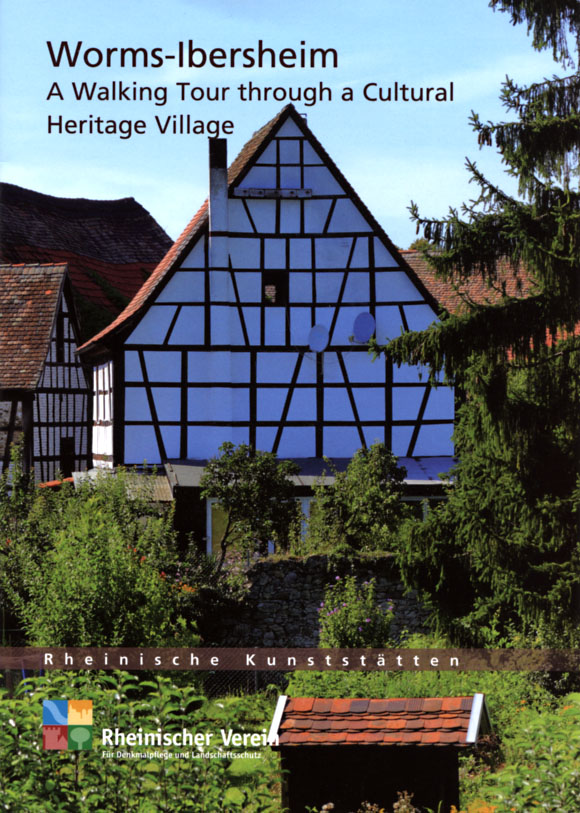
You can pay by check (made out to Wayne Haston) or cash and mail to:
Wayne Haston, 702 Winebary Circle, Lewisberry, PA 17339 – or PayPal (WayneH37@aol.com).
If you enjoyed this article, please share it with others who might be interested.
